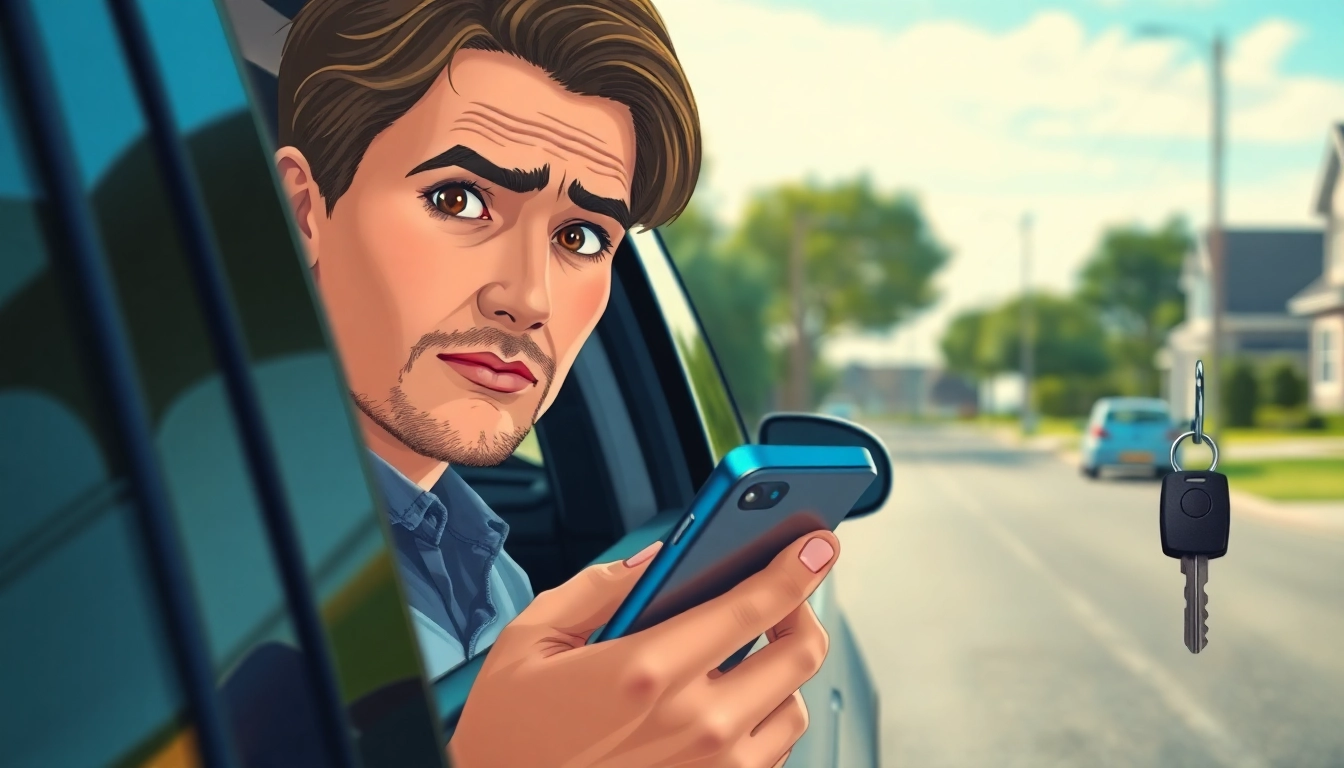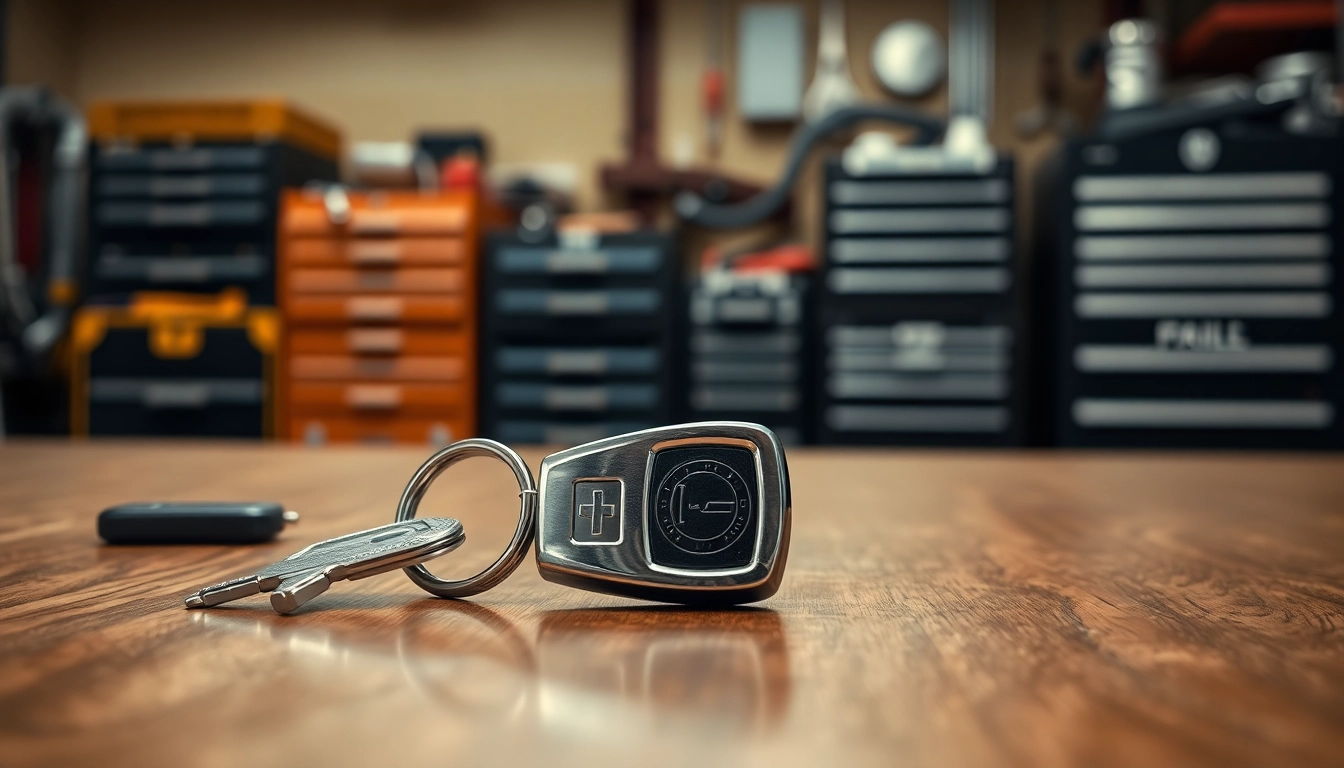Understanding the Problem of Keys Locked in Car
Locking your keys inside your car is a frustrating scenario most drivers have experienced at least once. It’s one of those all-too-common mishaps that can happen to anyone, often leading to a flurry of emotions ranging from embarrassment to panic. Understanding the nature of this problem is the first step towards finding efficient solutions. Whether you’re running late for a meeting or stuck in a parking lot, knowing how to react can save you both time and stress. In this article, we will explore the various aspects surrounding the issue of Keys Locked in Car, providing actionable advice on how to retrieve them and ways to avoid this predicament in the future.
Common Scenarios Leading to Locked Keys in Car
Several common situations lead to drivers locking their keys inside the vehicle. Understanding these scenarios can help you remain alert and prevent such misfires:
- Distractions: Everyday distractions can easily lead to forgetfulness. Whether you’re rushing to an appointment, juggling multiple tasks, or simply engaged in a conversation, it’s easy to overlook the keys left on the seat or in the ignition.
- Key Fobs and Push Start Systems: With the increased adoption of keyless entry systems, drivers may inadvertently leave the keys in the car while locking it, especially if they are accustomed to the doors automatically locking when they walk away.
- Manual Locks: Older vehicles often use manual locks, where the driver may accidentally lock the doors while exiting the vehicle, trapping the keys inside without a backup plan.
- Child Safety Locks: Parents can struggle when their little ones accidentally lock the doors from the inside or out of curiosity, leaving the parents at a loss on how to access the vehicle.
Consequences of Locking Keys in Car
The consequences of locking your keys in your vehicle extend beyond mere inconvenience. Understanding these ramifications can underscore the importance of taking immediate action:
- Time Wastage: A moment of forgetfulness can turn into an extensive delay. Whether awaiting roadside assistance or trying DIY methods to unlock your vehicle, every minute matters, especially in urgent situations.
- Financial Impact: Calling a locksmith or roadside assistance can sometimes result in hefty charges, depending on the service’s urgency and location, which can strain your budget unexpectedly.
- Emotional Stress: The panic and embarrassment of being locked out, particularly when in public spaces, can be overwhelming, affecting your mood and productivity for the day.
- Potential for Vehicle Damage: Attempting to force your way into the vehicle can lead to damage to the door locks or windows, incurring additional repair costs.
Preventive Measures to Avoid Locking Keys in Car
Implementing preventive strategies can mitigate the chances of locking your keys in your vehicle. Here are some practical tips:
- Use a Key Hook: Designate a specific place at home to hang your keys, establishing a habit of always placing them there when not in use.
- Spare Keys: Consider investing in a spare key. Whether it’s a traditional copy or a smart key, having one can be a lifesaver in case of a lockout.
- Technological Aids: Many modern vehicles come equipped with smartphone apps or settings that can alert you if your keys are left inside the car. Look into these features as a way to leverage technology for added security.
- Routine Checks: Before leaving your vehicle, get into the habit of verifying that you have your keys with you. A simple mental note can go a long way in avoiding mishaps.
Immediate Actions to Take When Keys Locked in Car
The moments following the realization that you have locked your keys in your car are crucial. Acts of clarity and keen judgment can dramatically impact the outcome:
Assess Your Options: DIY vs. Professional Help
When you find yourself in a bind, your initial choice is whether to attempt a DIY solution or call for professional assistance. Here’s how to assess your options:
- DIY Solutions: If you are in a secure and private environment, and especially if your vehicle is older, you might consider trying some safe DIY methods like using a coat hanger or a wedge and a rod to unlock the door.
- Calling for Help: If time is of the essence or if you feel unsafe attempting to unlock your own vehicle, calling roadside assistance or a locksmith is often the best choice. Most kwown services can arrive quickly and have the tools necessary to get you back in your vehicle without damage.
Identify the Best Tools You Might Need
Whether you choose to go the DIY route or call a professional service, familiarizing yourself with the tools involved is essential:
- Slim Jim: A long, thin strip of metal that you can use to bypass the lock mechanism.
- Wedge: Used to create a gap between the door frame and the door itself, allowing access for other tools.
- Rod: A long, flexible tool that can be used together with the wedge for unlocking purposes.
- Lockout Tool Kit: Some vehicle owners keep a lockout kit in their car, which includes several useful tools for emergencies.
When to Call for Emergency Assistance
It’s important to recognize when to call for help instead of attempting to unlock the vehicle yourself. Here are some situations indicating you should seek professional assistance:
- You have no feasible way to unlock your car without risking damage.
- The car is in an unsafe location, such as a busy street or a dark area.
- Time constraints necessitate urgent access to the vehicle, such as a child’s emergency.
- You feel uncertain about your DIY capabilities, and attempting to unlock the vehicle could exacerbate the situation.
DIY Techniques to Retrieve Keys Locked in Car
If you feel confident in your ability to perform a DIY unlocking method, there are several techniques you can employ. Here is a detailed guide:
Using Basic Household Items for Unlocking
In some cases, simple household items can come to your rescue:
- Coat Hanger: This classic method requires bending the wire into a hook shape. Slide the hanger along the weather stripping on the door until you reach the locking mechanism.
- String or Fishing Line: This can work for manual locks. Insert it into the gap of the door, loop it around the lock, and pull up to unlock.
- Plastic Wedge: Create a gap in the vehicle’s door frame with a plastic wedge, then insert a rod to hit the unlock button.
Techniques for Different Vehicle Types
Not all vehicles are created equal. Different makes and models require specific approaches to unlock. Here are several common techniques catering to simple and complex systems:
- For Older Vehicles: Utilizing the slim jim or coat hanger proves more effective since these models lack advanced locking mechanisms.
- For Newer Models: Modern cars often have electronic locks, making DIY methods less effective. Calling a professional locksmith is often the safest route.
When DIY Methods Are Not Recommended
While DIY methods can be effective in some cases, there are situations where attempting them could lead to complications:
- If you feel uncomfortable using tools or have physical limitations.
- In high-risk environments where your safety may be at stake.
- If you are in an unfamiliar area and feel uneasy.
Long-Term Solutions to Prevent Keys Locked in Car
Improving your approach to vehicle access can significantly ease the stress of a lockout situation. Here are effective long-term strategies:
Keyless Entry Systems: Modern Solutions
Investing in a keyless entry system can be a game-changer. This technology not only reduces the risk of being locked out but also enhances your vehicle’s security:
- Many modern vehicles come with built-in smart key technology, enabling you to unlock your doors with just a push of a button.
- Some keyless entry systems have app integration, allowing you to unlock your vehicle using your smartphone.
Creating Spare Key Systems for Emergencies
Having a spare key can provide peace of mind and ensure you’re never left stranded:
- Consider having a spare key made that can be stored within easy access of someone you trust.
- Utilize a hidden lockbox on your vehicle to keep a spare key secure yet accessible.
Community Resources and Apps for Lockout Situations
Numerous apps and community services can also assist in lockout situations:
- Emergency apps can alert local services to your situation, many of which can provide assistance for free or low cost.
- Community-driven tools can connect you with nearby individuals who may help unlock your vehicle.
Frequently Asked Questions About Keys Locked in Car
What Should I Do If I Locked My Keys in My Car at Night?
If you find yourself locked out at night, prioritize your safety. Try calling a trusted friend or family member for assistance, consider using a locksmith if feeling unsafe, or use a roadside assistance service.
How Much Does It Cost to Get Keys Locked in Car Service?
Depending on your location and the service you choose, the cost to regain access to your vehicle can vary. Typically, locksmith services can range anywhere from $50 to several hundred dollars, especially if emergency service is involved.
What Are Local Laws Regarding Helping Someone With Keys Locked in Car?
Local laws around assisting someone locked out differ by region. It’s best to consult local regulations to ensure you’re following guidelines and not infringing on someone’s privacy or property rights.



